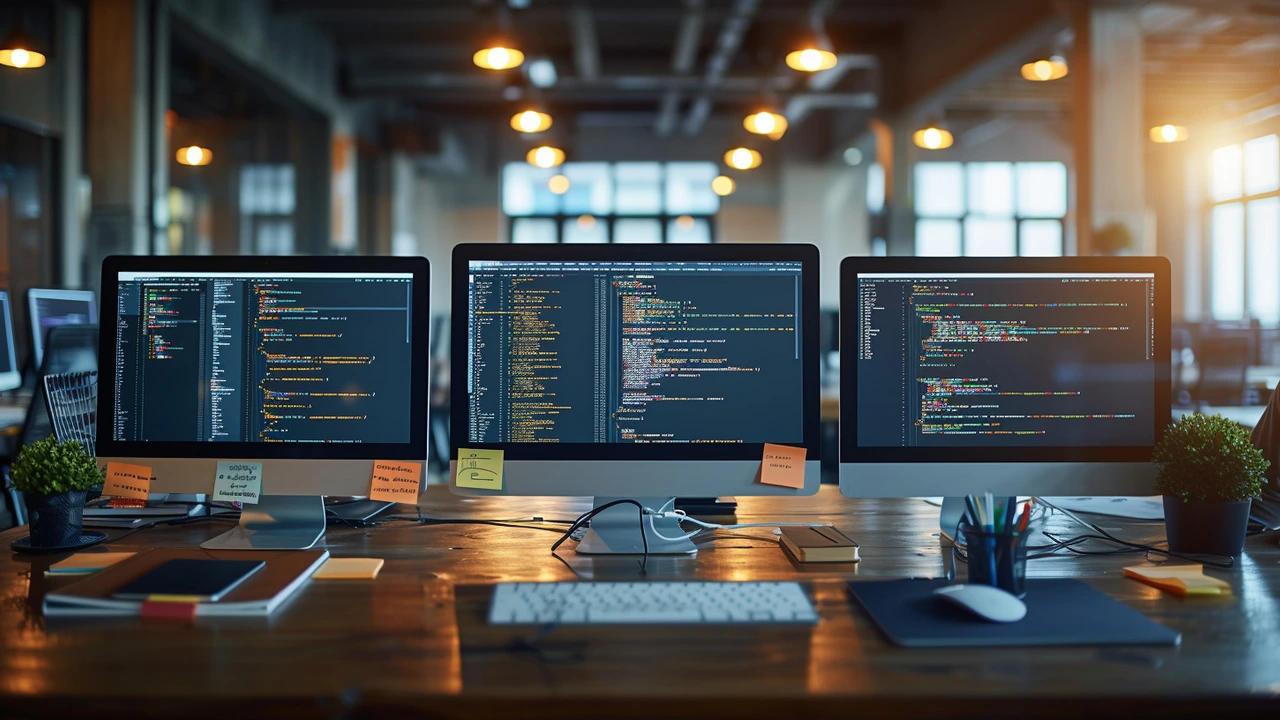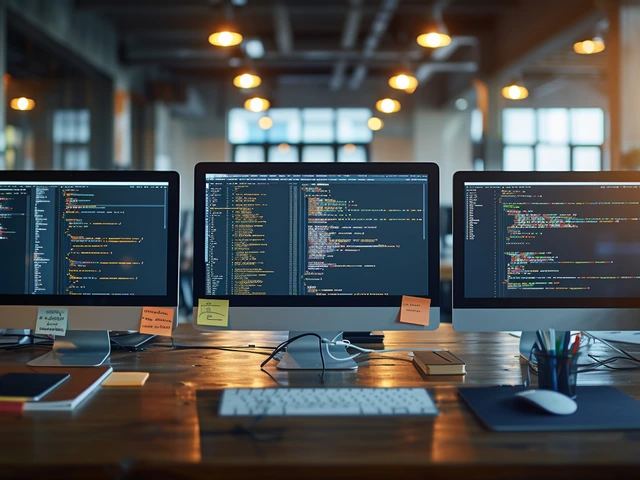Oct
19

- by Preston Callaghan
- 0 Comments
Understanding Logic and Code: Setting The Right Foundation
Hello, world! Err... Sorry! As I was saying, let's dive into the world of coding – where typing on a keyboard becomes an immeasurable reality. In essence, coding is just another way for us humans to get our commands done without lifting anything heaver than a fingertip. But at its core, it's a mastery of logic and abstract thinking. Just like how my Dalmatian, Dancer, has sort of instinctively learned that if he manages to pull off his doleful puppy-dog look just right, he's more likely to land a treat from me.
So, you might wonder - how does one improve their logical thinking for coding? Well, bear with me, because this isn't your one-night, 'take a pill and wake up a coding prodigy' sort of advice. It involves practice, perseverance, and yes, a fair bit of mental gymnastics. Don't worry, we're all here struggling in the same boat. No one was born writing "Hello, World!" in Python.
The Enigma of Problem Solving: Tackling Coding Challenges
To gear up your logical thinking, start by solving problems. Remember those wretched maths problems you'd do anything to avoid in school? Yes, it's time to confront those demons because they're (surprise, surprise) about to make you a better coder. Coding problems (just like those maths problems) are just simplified versions of real-life problems. They might come disguised as 'if else' or 'loops', but they unravel the same way - bit by bit, step by step.
Doesn't believing that solving a problem means exactly that, rather than directly finding a solution, make it less intimidating and more doable? Try out coding problem platforms such as HackerRank, LeetCode, CodeSignal, and many others. Every problem you 'crack', every test case you pass, and every new solution you conceive, is a new mental muscle formed in your brain.
Driving Through Debug Highway: Identifying and Correcting Errors
Remember when you first learned to drive? And the countless errors you made on that trying journey? Well, debugging in coding is somewhat like that. Correcting errors is not just about ‘righting a wrong', but understanding and absorbing the reality of why something went wrong. Debugging is as much a part of coding as coding itself - and if you're lucky, it'll be an enlightening journey of discovering new heights (or depths) of your patience.
But as you progress in your journey, it often turns into a delightful exploration of your code where you unearth hidden treasures (like an unexpected if-else condition, or a misfit array) that can totally change your program behaviour. And let me tell you - the joy of smoothing out that last wrinkle in your code after hours of debugging? Oh, it's a triumph that's no less than winning the World Cup (for coders, at least!).
Algorithmic Acrobatics: Mastering the Art of Pseudocode
Pseudocode is like a secret language between you and your logical side. It doesn't require syntax, it doesn't stop at semantic errors, and it certainly doesn't give a damn about whether your code is written in Python, Java, C++, or any other language. The golden rule of pseudocode is - if it makes sense to you, it's right. It's your personal cognitive blueprint of the code you're about to write.
So, what does pseudocode have to do with logic? Ah, well everything. It gives you a high-level overview of what the heck you're trying to achieve with your code in the first place. Just like navigating a maze, it often helps to view it from the top, giving you a perspective that getting lost in the trenches doesn't offer. The great thing about pseudocode is that it's as flexible as a yoga master, and as understanding as grandmother's warm hug - it bends, moulds, and forms itself according to your thought process.
The Symphony of Syntax: Playing with Programming Languages
Now, you might be thinking, "Preston, sure, problem-solving is fine, debugging sounds thrilly, pseudocode seems dope but we haven't even started coding!" And yes, you're right. But remember, learning to code is like tuning in to a symphony. You can't get wholly lost in the sensation of music if you're continuously juggling with the mechanics of it.
I remember, during my early ventures into coding, I was so engrossed in understanding and remembering the syntax, the 'grammar' of the coding language, that I almost missed the whole point of coding - expressing my solutions to problems creatively! So, don't stress too much about the language. Focus on the 'what and why' before the 'how'. You'll soon realize that syntax, like vocabulary, naturally flows in with practice and immersion.
So, there you go! Some of my tips to help you improve logical thinking in coding. Just remember, just like my Dalmatian, Dancer, who after countless sessions of training, still manages to nab an extra treat now and then with his occasional ‘accidents’. It’s okay to stumble, okay to get frustrated, but ultimately, it's all part of the journey - the exhilarating, often frustrating, but definitely rewarding, journey of coding!






Write a comment